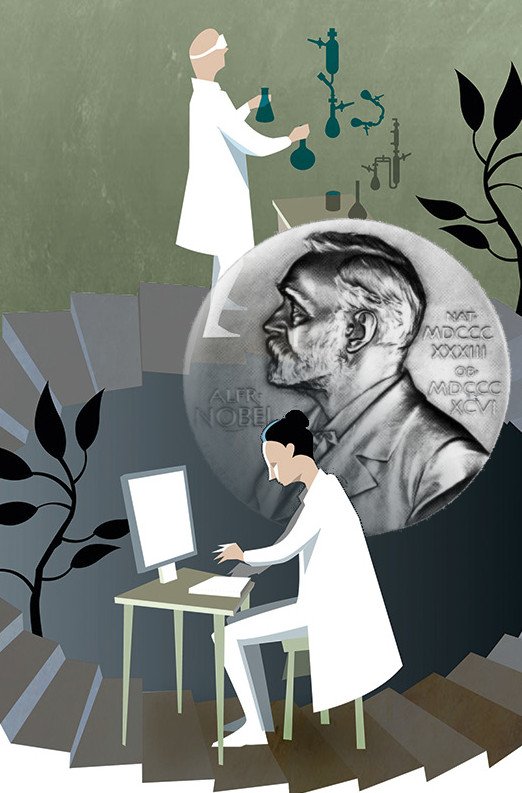Three scientists who laid the groundwork for moving chemistry into the digital era have been awarded the 2013 Nobel Prize for chemistry
 The Royal Swedish Academy of Sciences has decided to award the Nobel Prize in Chemistry for 2013 to Martin Karplus, Michael Levitt and Arieh Warshel “for the development of multiscale models for complex chemical systems”.
The Royal Swedish Academy of Sciences has decided to award the Nobel Prize in Chemistry for 2013 to Martin Karplus, Michael Levitt and Arieh Warshel “for the development of multiscale models for complex chemical systems”.
According to the Nobel press release:
“Chemists used to create models of molecules using plastic balls and sticks. Today, the modelling is carried out in computers. In the 1970s, Martin Karplus, Michael Levitt and Arieh Warshel laid the foundation for the powerful programs that are used to understand and predict chemical processes. Computer models mirroring real life have become crucial for most advances made in chemistry today.
Chemical reactions occur at lightning speed. In a fraction of a millisecond, electrons jump from one atomic nucleus to the other. Classical chemistry has a hard time keeping up; it is virtually impossible to experimentally map every little step in a chemical process. Aided by the methods now awarded with the Nobel Prize in Chemistry, scientists let computers unveil chemical processes, such as a catalyst’s purification of exhaust fumes or the photosynthesis in green leaves.”